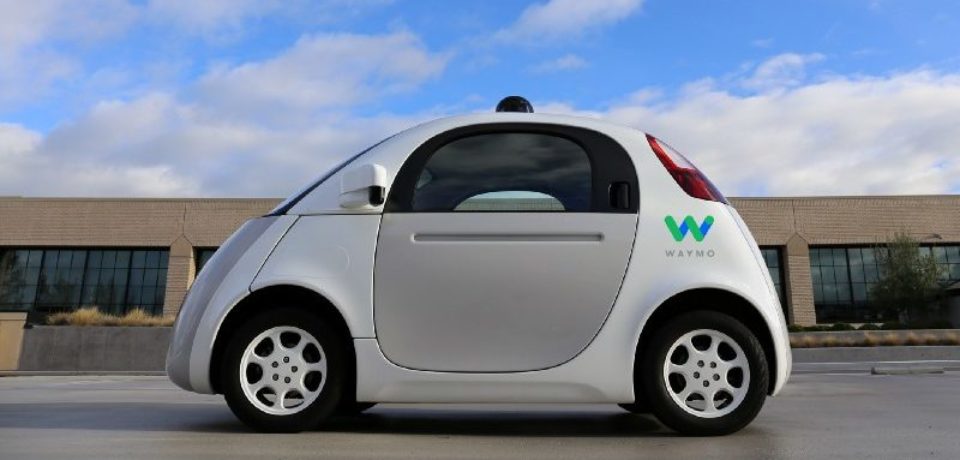Google takes lead on California driverless cars
 As Silicon Valley rushes to stake out a lead in what’s hoped to be a robust market for driverless cars, the company spun off of Google has established a clear lead — perhaps giving the competition a reason to consider focusing their efforts outside the Golden State.
As Silicon Valley rushes to stake out a lead in what’s hoped to be a robust market for driverless cars, the company spun off of Google has established a clear lead — perhaps giving the competition a reason to consider focusing their efforts outside the Golden State.
“New data on tests of self-driving car technology in California suggest that Alphabet Inc.’s efforts remain ahead of many rivals in the intensifying race to bring fully autonomous vehicles to the roads,” the Wall Street Journal reported, noting that the company’s driverless unit, Waymo, clocked nearly 640,000 miles on California roads in a 12-month span encompassing the end of 2015 and most of 2016.
Pulling ahead
The newly released figures underscored how significant of an advantage in experience and testing the Google-spawned enterprise has gained over its rivals, which now include not only the likes of Tesla and Apple but old-line auto companies like GM and Ford that have begun to move into the driverless space as well. “The data show that Waymo, the driverless car unit of Alphabet, logged 30 times more miles of testing in autonomous vehicles than all of its competitors combined last year in California,” according to Financial Times. “Its cars were also the most accurate, with human intervention needed for safety reasons only 0.2 times per thousand miles.”
“The data provide the most comprehensive snapshot yet of competing driverless car technologies, at a time when carmakers and technology companies are racing to be the first to perfect autonomous vehicles. It shows Waymo, BMW, Ford and Nissan as the most accurate systems. California is unique in the U.S. for requiring that companies testing autonomous vehicles report their miles driven and ‘disengagements’ (when a human driver has to take over the wheel) each year. In the absence of federal laws on self-driving cars, these disclosures are the only comprehensive information that allow for side-by-side comparisons between carmakers.”
Only by racking up lots of miles on the road can driverless companies accumulate enough instances of disengagement to correct and refine its programming. Human takeover, Waymo explained in its report, “[is] a natural part of the testing process that allow our engineers to expand the software’s capabilities and identify areas of improvement,” Marketwatch reported. “It marked a 50 percent increase in total autonomous miles within California compared with the prior reporting period, which was two months longer than this reporting period, it said. The number of disengagements fell 75 percent to 124 last year from 341 in 2015, Waymo said.”
Greener pastures?
Despite the flurry of activity, some in Sacramento have found cause for concern. The same absence of federal law that helped make California such a hotbed of activity brought with it a potential downside — regulatory reactions against the modest risks that the development of driverless cars can bring to streets. In fact, in a recent tiff that rattled nerves, Uber refused to apply for state permits for its self-driving vehicles, drawing a reprimand that saw the powerful ride-sharing company opt to ship its driverless fleet to welcoming Arizona. Hoping to head off a stampede, a new bill introduced by State Sen. Jerry Hill, D-San Mateo, “would require the DMV to immediately accept or reject an application to put a driverless car on the road,” as the Los Angeles Times reported. If passed, the legislation would clear a considerable hurdle now facing companies like Uber in California. “The regulations the DMV has proposed, by contrast, would give the agency 180 days — nearly half a year — to decide yes or no.”
Competition has geared up nationwide for the favor of driverless car companies, which especially covet urban environments where they can be free to test their vehicles in complex but reasonably controllable environments. GM President Dan Ammann told the Chicago Sun-Times, “GM is awaiting the state Legislature’s approval before it can consider testing self-driving cars here, as it does already in California, Arizona and in the Detroit area,” the paper noted. “Yet even without the legislation, GM has introduced in Chicago its Maven car-sharing service, which is envisioned as eventually operating with driverless cars for hire, and Express Drive, which lets drivers for GM’s partner Lyft rent a car at a subsidized rate. The rental program is GM’s entry into developing a network that will eventually include driverless cars.”
Related Articles
New Internet Tax Looting Scheme
MAY 5, 2011 By JOHN SEILER It just never stops. Never, never, never. The attacks on California taxpayers by the
L.A. caps CA trend with $15 minimum wage vote
By a nearly unanimous vote, the Los Angeles City council voted to raise the city’s minimum wage to $15 an
Dems bail out Assemblyman Adam Gray’s re-election
When the FBI began its investigation last year into state Sen. Ron Calderon, D-Montebello, one Central Valley Democratic lawmaker wasn’t surprised




